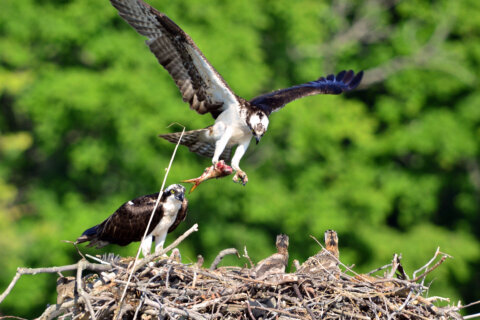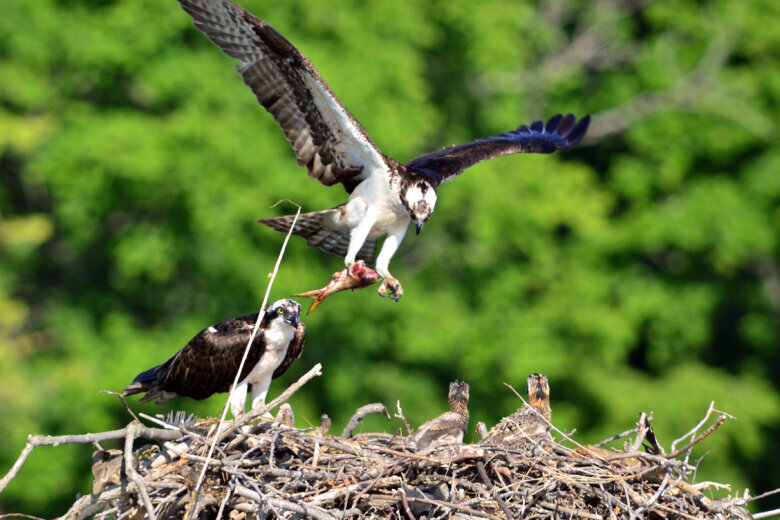
A new report from a Virginia college details the struggle Ospreys face to reproduce and raise viable chicks.
The College of William & Mary’s Center for Conservation Biology report examined the breeding performance during the 2024 season, which lasted from March through August.
It found that ospreys in the salt water and brackish water have an especially difficult situation because of a lack food sources, a trend Ospreys in the Chesapeake region continue to face.
Ospreys in the stem of the Chesapeake Bay, especially in Virginia and southern Maryland, are particularly struggling to produce viable chicks, according to the report. The overall reproductive rate for pairs of ospreys in this area is approximately half what is needed just to maintain the existing population.
Asymmetric broods, groups of hatchlings where one young bird receives more food than the other, were common and throughout the main stem of the Chesapeake. On average, osprey pairs lost 1.1 bird between hatching and fledging.
The report said poor breeding was driven by the loss of those young chicks. The researchers said in their study that it is “a clear indicator” of food stress when they begin to see asymmetric broods.
Researchers pointed to one camera-observed nest where the female osprey hatched three eggs, two of the chicks were not fed as often as the third one and died quickly. The third one, the largest of the brood, lived another four days, but died after 38 hours with no food.
In the stem area of the Chesapeake, the main food source for ospreys is a fish called menhaden. It is also commercial fished, particularly to the south.
Reedville, Virginia-based Omega Protein Corporation operates the only menhaden reduction plant left on the Atlantic coast. Reduction is a process that converts the fish into supplements, livestock feed and feed for fish farms.
The study found ospreys in fresher waters, inland of the bay, had a surplus of hatchlings and were reproducing above maintenance levels. Their diet consists of mainly catfish and gizzard shad.
Get breaking news and daily headlines delivered to your email inbox by signing up here.
© 2024 WTOP. All Rights Reserved. This website is not intended for users located within the European Economic Area.









